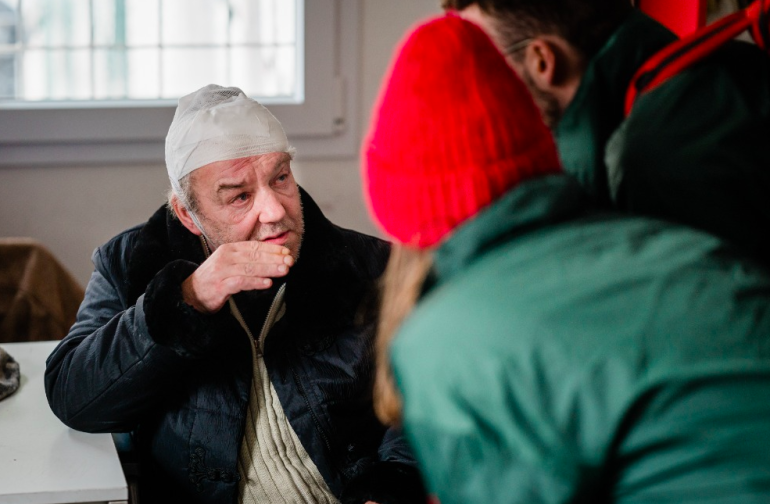The Medici na ulici (“Street Doctors”) association has opened a new centre on Mlýnská to provide medical care to homeless people in Brno. The space was provided by the City of Brno, allowing students from the association to perform basic treatment. The collective provides the medical supplies and equipment itself, and every student taking part is a volunteer, working during their spare time and without remuneration. The association follows the example of the Street Medicine movement, founded in the United States in the 1990s.
A group of six friends were inspired by the existing Medici na ulici initiative in Prague at the end of summer 2019, which resulted in the creation of the same initiative in Brno. They were able to secure the necessary medical equipment after a public fundraising campaign, and after learning the basic nursing procedures, they were able to go out into the streets. The financing of the project is mainly covered by donations and proceeds from charity collections.
Over time, the group encountered the possibility of their own low-threshold clinic near the Vlhká Contact Centre. “Last week was the last time we were there,” said Eliška Mezerová from the Medici na ulici. “We operated in a mode of twice a week in the cell, once a week in the field. Now we have the Mlýnská service three times a week and we have also preserved the property.”
The facilities in the new space allow the students to have access to water on site, and also to extend their time treating homeless people. The new location is close to the city center and the main train station, which is another advantage as these spaces are often frequented by homeless people. “However, we operate in the centre, and cannot reach people from squats on the outskirts of the city,” explained Mezerová.
In the new hub on Mlýnská, the service hours have been shifted to now operate from 4-7pm, rather than from 2–5pm, which is better both for the homeless people and for the students, according to Mezerová.
The health condition of people living on the street is concerning. According to Mezerová, it is not a coincidence that the health status of homeless people requires more special treatment or examination in hospitals due to their living conditions. However, some people living on the street keep refusing care, especially if they are in need of further medical assistance because they are not insured.
Dozens of students from medical faculties work at the association, focusing on basic treatment of acute or chronic wounds, health consultations, and general prevention. “For example, we treat leg ulcers and common injuries such as cuts,” said Mezerova. “With our hygiene standards, this would be a small thing, but for people on the street, it can turn into a full-blown infection and sepsis. We also often send people to the hospital, even if some do not want to go there because they are not insured.”
The association’s consultations also involve mental health and prevention, additional social assistance, and emergency treatment and where to look for it.
The student doctors can treat around 20 people in three hours, and even more during winter because people come with colds and frostbite. New members were recruited in the autumn in order for the association to be more efficient and more available to care for people during the approaching cold period.







